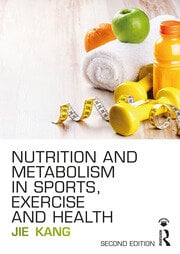ABSTRACT
The knowledge of metabolic responses to exercise and training is based largely on responses of young adult males. Gender differences in exercise metabolism seem to be mediated primarily by sex hormones such as estrogen and progesterone. A lower respiratory exchange ratio during submaximal endurance exercise was found in females as compared to males. Given the attenuation in glycogen utilization during exercise seen in women. A number of animal studies have been undertaken to examine the impact of estrogen upon the utilization of glycogen. Pregnancy places unique demands on women's metabolism. Aging causes various changes in body composition, which have important consequences for health and physical functions. Research mainly due to ethical considerations and methodological constraints in studying children and adolescents. Children also demonstrate a reduced ability to use carbohydrate as an energy source. Wholegrain products provide more nutrients and fiber. Insulin is an anabolic hormone that promotes cellular glucose uptake and synthesis of glycogen and triglycerides.


